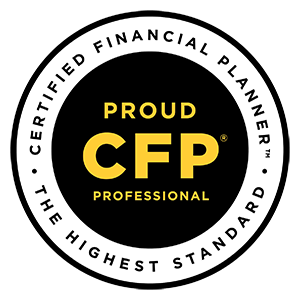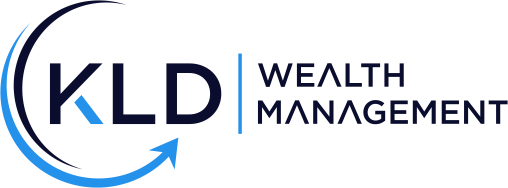Get in touch
Call or Text:
937-404-5180
Email:
dwiedmeyer@kldwealth.com
Rent vs. Own: Which Path is Right for Your Financial Future?
The question of whether to rent or own a home is one that many of us grapple with at some point in our lives. It's a decision that impacts not just your living situation but your financial future as well. Both options come with their own set of advantages and challenges, and the right choice often depends on your individual circumstances. In this post, we’ll break down the key differences between renting and owning, explore relevant data, and show how personal financial planning can help you chart the best path forward.
The Case for Renting: Flexibility and Lower Upfront Costs
Renting a home can offer a level of flexibility and financial freedom that ownership might not. For those who value mobility or are unsure of where they want to settle long-term, renting can be an attractive option.
- Lower Upfront Costs:
When you rent, your initial expenses are generally limited to a security deposit and the first month's rent. This is a stark contrast to buying a home, where you'll need a down payment, closing costs, and potentially other fees. According to the National Association of Realtors, the median home price in the U.S. as of mid-2024 is around $426,000, making the typical 20% down payment $85,200—an amount that can be out of reach for many.
- No Maintenance Costs:
As a renter, you’re not responsible for the upkeep of the property. If the HVAC system breaks down or the roof needs repair, it’s the landlord’s responsibility to handle it. This can save you significant money and hassle compared to homeownership.
- Flexibility:
Renting provides the freedom to move with relative ease. Whether it’s for a job, a change in lifestyle, or just a desire for a new environment, renting allows you to relocate without the complexities of selling a home.
The Case for Owning: Building Equity and Long-Term Stability
Owning a home has long been seen as a key component of the American Dream. It offers a sense of permanence and the potential for financial growth through property appreciation and equity building.
- Building Equity:
Each mortgage payment you make contributes to building equity—essentially, the portion of your home that you truly own. Over time, as you pay down your mortgage and your property (hopefully) appreciates, your equity grows. This can be a powerful wealth-building tool. For example, if you buy a home for $400,000 and it appreciates by just 3% annually, it could be worth over $537,000 in 10 years.
- Tax Benefits:
Homeownership can come with several tax advantages, such as the mortgage interest deduction, property tax deduction, and potentially capital gains exclusion when you sell your home. These benefits can make owning a home more affordable over the long term, especially if you’re in a higher tax bracket.
- Long-Term Stability:
Owning a home can provide a sense of stability and control that renting cannot. You’re not subject to rent increases, and you have the freedom to modify your home to suit your preferences. Additionally, having a fixed-rate mortgage means your monthly payments won’t change, providing predictability in your budget.
The Financial Planning Perspective: Which Is Right for You?
Deciding whether to rent or own is not just a lifestyle choice—it’s a financial one that should align with your broader financial goals. This is where personal financial planning becomes invaluable.
- Assessing Your Financial Readiness:
A comprehensive financial plan will help you assess whether you’re financially ready to buy a home. This includes evaluating your savings, credit score, debt levels, and your ability to handle the ongoing costs of homeownership, such as maintenance and property taxes.
- Understanding the True Costs:
Beyond the monthly mortgage or rent payment, there are other costs to consider—like insurance, taxes, utilities, and maintenance for homeowners, or renter’s insurance and possible rent increases for renters. Financial planning can help you understand these costs and how they fit into your overall budget.
- Long-Term Planning:
Whether you choose to rent or buy, it’s essential to consider how this decision impacts your long-term financial goals. Are you planning to stay in one place for a while? Do you have other investment opportunities that might be more lucrative than homeownership? A financial planner can help you weigh these factors and make a decision that supports your future.
In our previous posts, we’ve discussed the importance of budgeting and understanding the interest you pay each year. These topics are directly relevant when considering the rent vs. own decision. Just as with any financial choice, a clear budget is essential to understanding what you can afford, whether it’s a mortgage payment or rent. Additionally, if you’re considering a mortgage, understanding the impact of interest rates—as discussed in our blog on interest rates—is crucial to making an informed decision.
Still unsure whether to rent or own? Let’s find the answer together. Contact us today to schedule a consultation, and let’s develop a personalized financial plan that aligns with your goals and helps you make the best decision for your future.
The choice between renting and owning is one of the most significant financial decisions you’ll make. By taking a thoughtful, informed approach—and with the guidance of a financial planner—you can choose the path that’s right for you and your financial future.





Phone
937-404-5180
706 Deerfield Rd.
Lebanon, OH 45036
Get financial wellness tips, directly to your inbox.
Contact Us
We will get back to you as soon as possible.
Please try again later.
All Rights Reserved | KLD Wealth | Privacy Policy | Form ADV
Advisory services offered through KLD Wealth Management, LLC, an investment adviser registered with the state(s) of Ohio. Advisory services are only offered to clients or prospective clients where KLD Wealth Management, LLC and its representatives are properly registered or exempt from registration.
The information on this site is not intended as tax, accounting or legal advice, nor is it an offer or solicitation to buy or sell, or as an endorsement of any company, security, fund, or other offering. Information provided should not be solely relied upon for decision making. Please consult your legal, tax, or accounting professional regarding your specific situation. Investments involve risk and have the potential for complete loss. It should not be assumed that any recommendations made will necessarily be profitable.
The information on this site is provided “AS IS” and without warranties either express or implied and the information may not be free from error. Your use of the information provided is at your sole risk.
